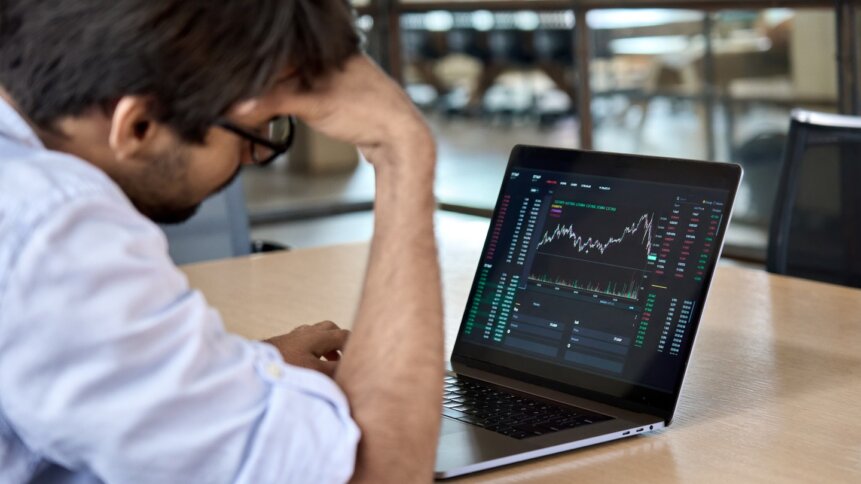FTX crypto-exchange files for bankruptcy – then gets hacked

The second largest crypto-exchange in the world, FTX, has filed for bankruptcy in the US. While that in and of itself will be enough to shake confidence in the crypto-market – after all, if FTX can collapse, is any exchange safe? – the speed with which FTX fell from prominence to ruin will be the truly chilling factor for investors. The end came for FTX is little more than a week, heightening the disbelief from all who watched it fall.
Sam Bankman-Fried, the chief executive of FTX, who had an estimated net worth of over $15 bn last week and was occasionally known as “the Warren Buffett of cryptocurrency,” stepped down when the company collapsed.
A run on the exchange
The company’s fall was the result of a classic Great Depression-style “run” on the exchange. It began with rumors that both FTX and other companies owned by Bankman-Fried were financially unstable. The rumors grew into customer panic, and more and more exchange-users tried to remove their money. That only put the exchange under further pressure, and forced Bankman-Fried to look for bailouts and funding to cover the billions of dollars’ worth of withdrawals.
He failed to secure those bailouts, which leaves FTX facing Chapter 11 bankruptcy, and lots of investors and exchange-users high and dry, their money nothing more than a digital whisper on the crypto-wind.
Chapter 11 bankruptcy will let the company stay alive while it restructures its debt obligation under the supervision of the court. What that means is that, to quote an FTX statement, it will “begin an orderly process to review and monetize assets for the benefit of all global stakeholders.”
In its Chapter 11 filing, FTX claimed to have between $10bn and $50bn in assets and liabilities – but also that it had over 100,000 creditors.
The proceeding involves Alameda Research, a separate trading firm (hedge fund) founded by Mr Bankman-Fried, and around 130 affiliates. Despite Mr Bankman-Fried claiming that FTX’s operations in the US would be unaffected, it has now been confirmed that those operations are part of the filing.
Bankman-Fried is succeeded as chief executive by John J Ray III, a lawyer with previous experience in venture capital and large-scale bankruptcy cases.
His take on how to move FTX forward was “The FTX Group has valuable assets that can only be effectively administered in an organised, joint process,” said new chief executive John J Ray III, a lawyer who previously worked at a venture capital firm and has experience with high-profile bankruptcy cases.
Since FTX filed for Chapter 11 bankruptcy, other elements of questionable behavior have emerged, including $1 bn of missing funds, said to have been siphoned to Alamada Research.
The hack
But even more significantly, in a move that could be in the dictionary of synonyms under “kick a man when he’s down,” FTX has been hacked for an extraordinary sum of money. Initially, it was reported in the Wall Street Journal that a hacker had siphoned $370 million out of FTX’s cryptowallet.
Since that initial post-bankruptcy report though, the amount has been almost doubled to more than $600 million, prompting an account administrator in the FTX Support Telegram chat to post the extraordinary advice to users that “FTX has been hacked. FTX apps are malware. Delete them. Chat is open. Don’t go on FTX site as it might download Trojans.”
Right now, many users have $0 balances in their FTX accounts, and there is utter chaos and confusion over whether these zero balances are down to the bankruptcy, to the shifting of FTX into cold storage, or to the mega-hack – or indeed to a mixture of all three.
Perhaps naturally enough, given the circumstances, there are also the beginnings of a conspiracy theory circulating among understandably aggrieved users that the hack may have been the work of a company insider, either to cash in before the money was needed to pay users their funds, or potentially by someone close to Mr Bankman-Fried as a way of salvaging assets from the ruins of the previously pristine exchange. It is important to note though that these conspiracy theories are as yet entirely without provable foundation.
The longstanding impact
Whether users will eventually get any or all of their assets returned remains to be seen in the way that FTX is able to restructure its debt burden, but the impact on the cryptomarket is unlikely to be forgotten for decades.
The fundamental point about crypto-exchanges is that they are supposed to be distributed for safety. But there are hacks on exchanges happening increasingly regularly, with losses in the hundreds of millions of dollars. Those attacks have paved the way for a degree of caution about crypto-exchanges. But the almost instantaneous collapse into bankruptcy of the world’s second largest exchange will spook the market to the same extent as the loss of any major company in the bricks and mortar world. It will be felt particularly deeply, given that Mr Bankman-Fried had recently embarked on an advertising blitz specifically to persuade people that the cryptomarket was a sound, safe, worthwhile investment opportunity. While the mechanics are nothing alike, that advertising blitz now looks like the PR that sustains a Ponzi scheme – a worthless waste of words to cover a scam.
That’s a perception that has already shaken other cryptobusinesses in the wake of the collapse of FTX. Bitcoin in particular dropped 20% this week, while Changpeng Zhao, chief executive of Binance, warned that there were no winners in the cryptomarket as a result of FTX’s collapse. Ironically, Binance was one of the potential buyers that could have saved FTX once the rapid rot set in, but it ultimately chose not to pursue the sale.
The relatively unregulated nature of cryptomarkets has left them vulnerable for some time, and regulators have warned that it would only be a matter of time before something like the FTX crash happened if such a situation continued.
The question now is how much longer the cryptomarket can dare to remain as unregulated as it is, if confidence in the whole system is to be retained and even boosted to pre-FTX levels.
Confidence is nowhere near that level right now, as the full ramifications of the FTX bankruptcy have yet to play out. Watch this space, by all means, but it will be brave – or cavalier – investors who back crypto-exchanges heavily right now.










